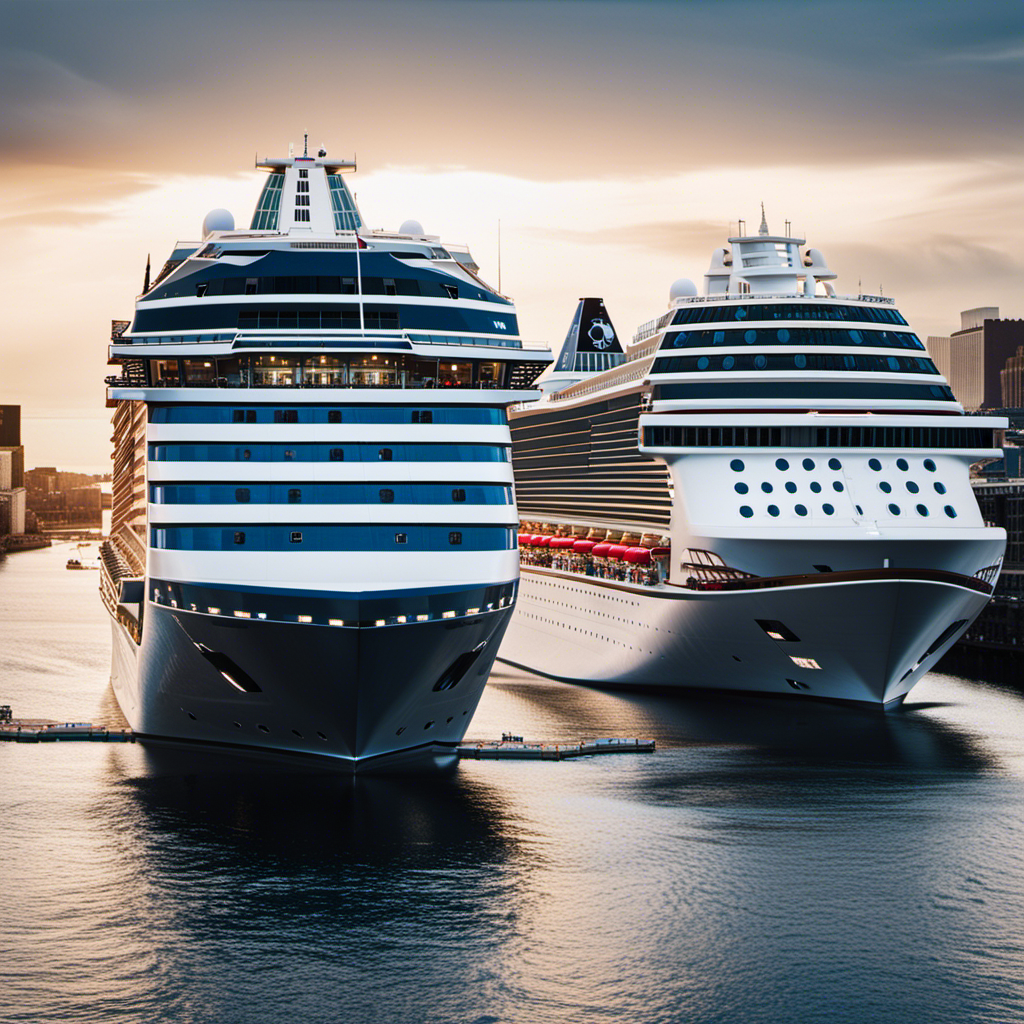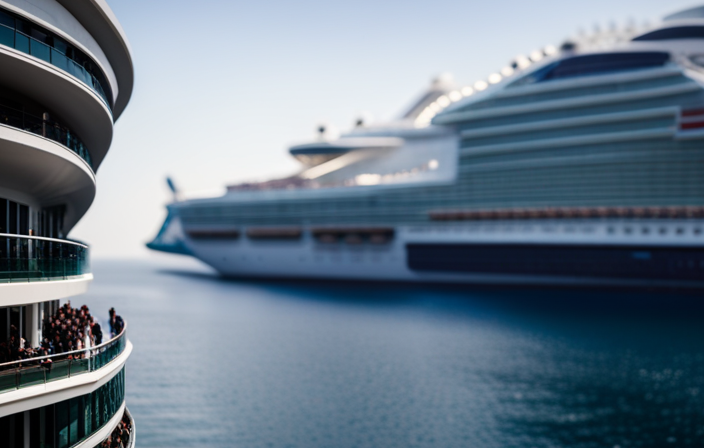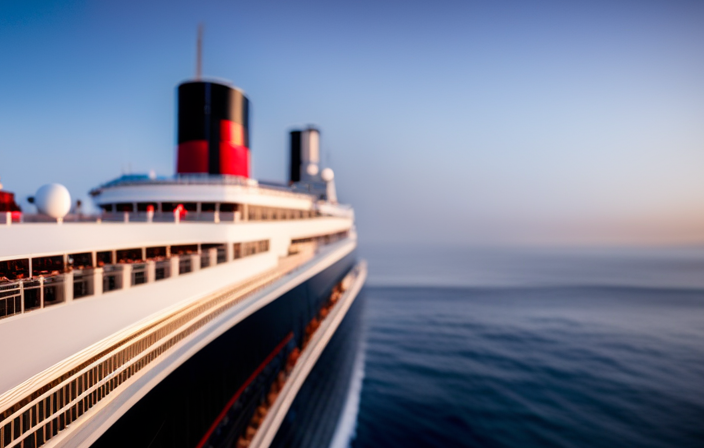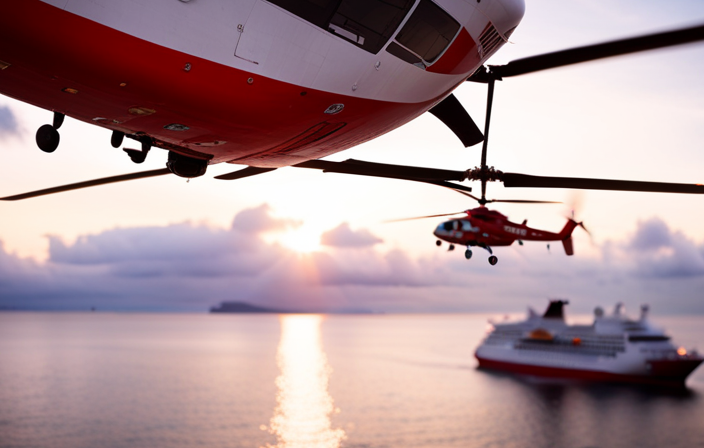Ah, the Jones Act and the Passenger Vessel Services Act (PVSA) have sparked plenty of debates within the U.S. cruise industry. These pieces of legislation, aimed at protecting national security and upholding American interests, profoundly affect how cruise ships operate within U.S. territorial waters.
While the Jones Act focuses on cargo vessels, the PVSA specifically targets the transportation of passengers on cruise ships. As a curious traveler myself, I’ve often wondered about the purpose and differences between these laws, the requirements they impose on cruise itineraries, and the implications and consequences for both the cruise lines and us passengers.
It seems that the PVSA, in particular, has drawn criticism for being outdated and restrictive. As discussions about the future of cruising in North America unfold, one potential solution that’s been suggested is bubble cruising, allowing passengers to explore their immediate surroundings.
So, let’s delve into the intricacies of these laws and how they shape the US cruise industry.
Key Takeaways
- The Jones Act aims to protect US national security and interests, while the Passenger Vessel Services Act (PVSA) applies specifically to the transportation of cruise ship passengers.
- The Jones Act prohibits foreign-built and -flagged vessels from transporting goods between American ports without calling on a foreign port first, while the PVSA requires cruise lines to have a mix of US and foreign port calls in their itineraries.
- Cruise lines can obtain waivers for PVSA violations or pay fines, but if passengers fall ill or become injured and prevent the ship from calling on a foreign destination, the costs of the violation may be passed onto the passenger.
- PVSA is considered outdated by many in the maritime industry, and bubble cruising (limiting passengers to their immediate surrounding regions) could be adopted to work around PVSA restrictions.
What is it?
I know that the Jones Act and the Passenger Vessel Services Act (PVSA) are both important laws in the cruise industry, and I understand that compliance with PVSA regulations is essential for cruise lines.
The Jones Act, established in 1920, aims to protect US national security and interests. It prevents foreign-built and -flagged vessels from transporting goods between American ports without calling on a foreign port first. However, it only applies to cargo vessels and not cruise ships.
On the other hand, the PVSA is the counterpart to the Jones Act and applies specifically to the transportation of cruise ship passengers. It requires cruise lines to have a mix of US and foreign port calls in their itineraries.
These laws have a long history and significant impact on the cruise industry, shaping the way cruises are planned and operated within the United States.
Purpose and Differences
Compliance with specific requirements and regulations is crucial for cruise lines to differentiate between the Jones Act and the Passenger Vessel Services Act. These two laws serve different purposes and have distinct differences.
The Jones Act, enacted in 1920, aims to protect US national security and interests by preventing foreign-built and -flagged vessels from transporting goods between American ports without calling on a foreign port first. It applies only to cargo vessels and not cruise ships. On the other hand, the Passenger Vessel Services Act (PVSA) is the counterpart to the Jones Act and applies to the transportation of cruise ship passengers. It requires cruise lines to have a mix of US and foreign port calls in their itineraries.
Complying with PVSA regulations can be challenging for cruise lines. They may need to include nearby foreign ports in their itineraries, making some sailings longer in duration. Cruise lines can obtain waivers for PVSA violations or pay fines to US Customs and Border Patrol. If passengers disembark at a US port without meeting PVSA requirements, fines may also be imposed. The PVSA is considered archaic and outdated by many in the maritime industry.
To better understand the purpose and differences between the Jones Act and PVSA, refer to the table below:
| Jones Act | Passenger Vessel Services Act (PVSA) |
|---|---|
| Aims to protect US national security and interests | Applies to transportation of cruise ship passengers |
| Prevents foreign-built and -flagged vessels from transporting goods between American ports without calling on a foreign port first | Requires cruise lines to have a mix of US and foreign port calls in their itineraries |
| Applies only to cargo vessels, not cruise ships | Nearby foreign ports (North America, Central America, Bermuda, West Indies) do not meet PVSA requirements, except for roundtrip sailings |
| Mainstream cruise lines often include Canada ports on Alaska sailings and Mexico calls on cruises to Hawaii | |
| Norwegian Cruise Lines’ Pride of America is an exception as it is registered in the US and can sail the Hawaiian Islands without calling on foreign ports | |
| PVSA prevents ships from sailing from a US homeport to a nearby destination and back without adding foreign ports | |
| PVSA ended cruises to nowhere | |
| Cruise lines can obtain waivers for PVSA violations or pay fines to US Customs and Border Patrol | |
| If passengers fall ill or become injured, preventing the ship from calling on a foreign destination, the cruise line may pass the costs of the violation onto the passenger | |
| PVSA applies to where passengers physically embark and disembark, not their ticketed itinerary | |
| Disembarking at a US port without meeting PVSA requirements can result in fines | |
| In 2020, PVSA could prevent ships from sailing solely around the US and its territories without waivers | |
| Adding calls to private islands (mostly in the Bahamas) could help cruise lines comply with PVSA requirements | |
| PVSA is considered archaic and outdated by many in the maritime industry | |
| Bubble cruising (limiting passengers to their immediate surrounding regions) could be adopted in North America to work around PVSA restrictions | |
| Canada’s ban on cruise ships and restrictions from other countries could further drive the adoption of bubble cruising |
Requirements for Cruise Itineraries
Navigating the requirements for cruise itineraries can be a complex dance of balancing US and foreign port calls to comply with regulations and provide a diverse and engaging experience for passengers.
The Passenger Vessel Services Act (PVSA) plays a significant role in shaping these itineraries. Cruise lines must ensure a mix of US and foreign port calls, with nearby foreign ports not meeting PVSA requirements, except for roundtrip sailings.
To comply with PVSA, mainstream cruise lines often include Canada ports on Alaska sailings and Mexico calls on cruises to Hawaii. However, Norwegian Cruise Lines’ Pride of America, registered in the US, can sail the Hawaiian Islands without calling on foreign ports.
Violations of PVSA can result in fines, and cruise lines can obtain waivers or pass the costs onto passengers if they fall ill or become injured.
The impact on cruise lines is substantial, as they must carefully plan itineraries to meet PVSA requirements while still providing an enjoyable experience for passengers.
Implications and Consequences
Implications and consequences of these regulations can greatly impact the future of cruising in North America. Compliance with the Passenger Vessel Services Act (PVSA) is essential for cruise lines to avoid fines and penalties. Violations of PVSA can result in significant financial burdens for both the cruise line and the passengers. If a ship is unable to call on a foreign destination due to illness or injury, the costs of the violation may be passed on to the passengers. Additionally, PVSA’s strict requirements for cruise itineraries can limit the options for cruise lines, making it difficult to create appealing and diverse routes. However, there are potential solutions to navigate these challenges. Bubble cruising, which limits passengers to their immediate surrounding regions, could be adopted to work around PVSA restrictions. Furthermore, adding calls to private islands could help cruise lines comply with PVSA requirements. The ongoing discussions surrounding PVSA highlight the need for updates and reforms in the cruise industry laws to adapt to the changing landscape.
| Implications and Consequences | Challenges and Solutions |
|---|---|
| – Compliance with PVSA is essential to avoid fines and penalties | – Bubble cruising can be adopted to work around PVSA restrictions |
| – Violations of PVSA can result in significant financial burdens | – Adding calls to private islands can help comply with PVSA requirements |
| – Costs of PVSA violations may be passed on to passengers | – Ongoing discussions highlight the need for updates and reforms in cruise industry laws |
Future of Cruising
To address concerns about limited itinerary options, cruise lines are exploring innovative ways to create diverse and enticing routes for future sailing experiences. One potential solution that has gained traction is bubble cruising.
This concept involves limiting passengers to their immediate surrounding regions, allowing for itineraries that comply with the Passenger Vessel Services Act (PVSA) while still offering exciting destinations. Bubble cruising could be a game-changer for the North American cruise industry as it provides an opportunity to resume sailing and meet PVSA requirements.
Additionally, with Canada’s ban on cruise ships and restrictions from other countries, bubble cruising could become even more prevalent in the region. By incorporating private islands, mostly in the Bahamas, cruise lines can ensure compliance with PVSA regulations and offer unique experiences to passengers.
The impact of bubble cruising on North America’s cruising future is promising and opens up new possibilities for the industry.
Frequently Asked Questions
Can cruise lines obtain waivers for PVSA violations?
Yes, cruise lines can obtain waivers for PVSA violations. However, it is the responsibility of the cruise line to comply with PVSA regulations. Failure to do so can result in fines for the cruise line and potentially the passengers.
What are the potential fines for PVSA violations?
Potential fines for PVSA violations can be imposed on cruise lines by US Customs and Border Patrol. However, cruise lines can also obtain waivers for these violations, allowing them to continue operating without facing penalties.
Are passengers responsible for the costs of PVSA violations if they fall ill or become injured?
Passengers are not typically responsible for the costs of PVSA violations if they fall ill or become injured. Cruise lines may face fines, but it is uncommon for those costs to be passed onto passengers as compensation.
How do cruise lines comply with PVSA requirements when sailing solely around the US and its territories?
When cruise lines sail solely around the US and its territories, they can comply with PVSA requirements by obtaining waivers or incorporating calls to private islands in the Bahamas. These exceptions allow them to navigate US territorial waters while meeting the regulations.
What is bubble cruising and how could it be used to work around PVSA restrictions?
Bubble cruising is a strategy that could be used to work around PVSA restrictions in the US cruise industry. It involves limiting passengers to their immediate surrounding regions and exploring alternative routes to comply with PVSA regulations.










